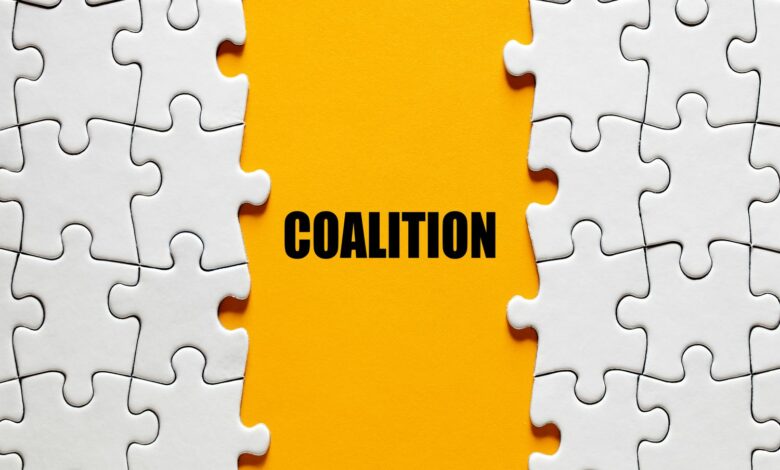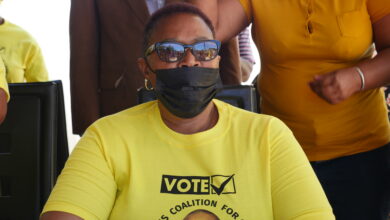Political parties dither on coalitions as elections beckon

With only a few months until the 2023 elections in Zimbabwe, political parties are still hesitant to create coalitions, despite their agreement that a united alliance may put pressure on Zanu PF.
The challenge, political parties noted, was that most political coalitions in the past have been about individuals rather than organisations.
“We never really seem to have a true alliance. People form parties for the purposes of having an alliance and winning a seat. You might find that an alliance or coalition becomes a grouping of individuals and not of groups. As a result, we are putting zeros together to get a big zero,” said ZAPU Secretary General, Mthulisi Hanana on This Morning on Asakhe, a CITE Twitter Spaces current affairs programme, Thursday on whether coalitions and alliances in Zimbabwe work.
Hanana noted alliances were necessary as Zimbabwe waged the liberation struggle on “an almost coalition basis,” adding that ZAPU has always been open to electoral pacts because they believe in the betterment of people.
“Even a temporary solution of Gukurahundi was to go into bed and have a temporary alliance with Zanu that resulted in Zanu PF, a sure sign that ZAPU is always prepared to do the right thing. In 2018, ZAPU did not field a presidential candidate but we endorsed one candidate that we hoped would win.”
The ZAPU Secretary-General stated history had taught the party a number of lessons in the past.
“If you look at 2018, the coalition there was one party and other parties were going back to it, calling it a coalition, that was the MDC of 1999 coming back in the form of a coalition. Where I feel we have problems is at the same time, there was a rainbow coalition led by former Vice President, Joice Mujuru, with other smaller parties which also had small numbers,” Hanana said.
He also remarked that parties must desist from coalescing around individuals or people without numbers.
“We must be humble enough to say we have nothing to bring to the table besides ideas but Zimbabwe is not yet mature to vote along ideas,” said the SG.
A true alliance, according to Hanana, must include churches, student movements, NGOs, teacher unions, and everyone else.
“This coalition must have two goals. First, make sure in 2023 we don’t have Mnangagwa or Zanu PF as president. We are where we are now as a result of Zanu’s mismanagement,” he said.
“Secondly, make sure no one party, especially Zanu PF, gets two-thirds majority because since 2013 to date, Zanu PF has had two-thirds and Parliament became a house of rubber stamping issues. We now have a lot of criminal laws sanitised by this Parliament.”
Hanana also expressed concern about the harmonisation of elections, as people focus more on the presidential campaign.
“When we lose the presidential race, we find ourselves having also lost the parliamentary race and Zanu has two-thirds majority,” he highlighted.
“A coalition must have an almost full cabinet so that we don’t find ourselves coalescing around one person. If I were to craft a coalition and it wins, I would name the president, the VP, the minister of finance so that when people are voting, they vote for a whole lot of things and not necessarily one.”
According to the SG, history suggests people tend to vote for a president of one party, then an MP or councillor from another, resulting in the opposition failing to win a two-thirds majority.
“As we inch towards an election we need a frank conversation, we don’t need a big brother but must ask ourselves what is it that everyone brings to the table,” Hanana said.
Nationalists Alliance Party (NAP) leader Divine Mhambi – Hove stated that coalitions would only work if political parties had the same ideologies.
“If the objective is to contest for purposes targeting another political party, the answer is no. We can only go for a coalition that shares the same vision with what we want to achieve because coalitions translate to votes and seats in Parliament,” he said.
“If the coalition supports the ideology we are pushing for, fine, but if the idea is to gang up and defeat another political party, the answer is strictly no.”
Former student leader, Takudzwa Ngadziore, said coalitions do work but fail in Zimbabwe as they are driven by political expediency and self-aggrandisement.
“Coalitions are not individual, the MDC of 1999 came to be because it was in the form of a movement -it had students, labour, workers from ZCTU and civil society,” he said.






